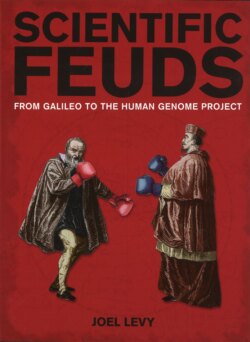Читать книгу Professional Hairstyling - Joel Levy - Страница 30
На сайте Литреса книга снята с продажи.
DAWKINS vs GOD
ОглавлениеRichard Dawkins is an evolutionary biologist who first achieved fame with his books The Selfish Gene (1976) and The Blind Watchmaker (1986), which popularized modern Darwinian theory. He has become one of the figureheads of a new breed of assertive atheism, and his 2006 book The God Delusion has sold over 2 million copies. The book’s assault on the dangerous and delusory nature of religion, together with his high-profile public pronouncements on the issues, have led former bishop Lord Harries to describe him as ‘one of the attack dogs of fundamentalist atheism’. Harries, who recently debated with Dawkins at Oxford to mark the anniversary of Darwin’s birth and commemorate the Wilberforce–Huxley clash, points out that ‘The old atheism was content to say that Christianity was untrue. The new attack dogs also say it is dangerous ... That’s fighting talk.’
Dawkins pulls no punches in The God Delusion, describing the God of the Old Testament as ‘arguably the most unpleasant character in all fiction’. He dismisses practitioners of what he calls ‘understated, decent, revisionist religion’ as being ‘numerically negligible’, focusing almost entirely on extremists, such as American television evangelists, or, as he puts it, ‘crude rabble-rousing chancers’.
Dawkins’ attack on religion has attracted a blizzard of criticism, most of it centred on what is perceived as his stridency and intolerance, which is often characterized as simply the mirror image of language used by religious fundamentalists. He dismisses criticism of his tone as pleas for exceptionalism on the part of religious belief: ‘The illusion of intemperance flows from the unspoken convention that faith is uniquely privileged: off limits to attack.’ More serious criticisms include that he swallows uncritically the myth of enlightened science at constant war with delusional and dishonest religion, that he ignores or is unaware of millennia of theological scholarship, and that by taking aim at only the crudest and most extreme caricature of religion he is prey to the ‘straw man’ fallacy (where an argument seems powerful because it fails to engage with the serious, substantive elements of the opposing view and concentrates only on easily disproved elements). Dawkins and others, such as American philosopher Daniel Dennett, who seek to apply the modern Darwinian philosophy to all areas of human experience, from psychology and spirituality to sociology and history, are also accused of unwarranted ‘empire-building’.
Fighting talk. Spanish version of a global atheistic ad campaign, featuring posters on buses reading, ‘There’s probably no God. Now stop worrying and enjoy life.’ The campaign has drawn fire from all sides – religionist and atheist.
Dawkins rebuts all these criticisms with varying degrees of success. For instance, he insists that ‘Most believers echo Robertson, Falwell or Haggard, Osama bin Laden or Ayatollah Khomeini,’ and points out, ‘These are not straw men. The world needs to face them, and my book does so.’ Journalist William Rees-Mogg, however, suggests that Dawkins’ approach is fundamentally flawed, and fails to do justice to the legacy of Darwin: ‘His tone is not like that of Charles Darwin himself; thoughtful, reflecting detailed observation, sensitive in the search for truth. It is more like that of Bishop Wilberforce in the Oxford debate of June 1860, in which the bishop attacked Darwinism.’
The legend of this encounter has grown over the years, whereas in reality it was probably little more than a minor skirmish in the protracted battles over evolution that continue to this day. For instance, Huxley’s battle with Richard Owen continued. Owen claimed to have proved that man was not descended from the apes through his studies of brain anatomy, but Huxley marshalled proof to the contrary in his 1863 book Evidence as to Man’s Place in Nature. Wilberforce went to an early grave in 1873, courtesy of head injuries sustained in a fall from a horse, which occasioned Huxley to remark uncharitably that ‘reality and his brains came into contact and the result was fatal.’ Today there are many who resent the supposed moral of the tale of Soapy Sam and the Bulldog – that Christians should stay out of science – which evangelical creationist Edward Coleson calls ‘one of the most damaging pseudo-scientific myths to gain wide credence in the West in the last century or two’.
